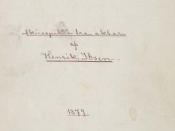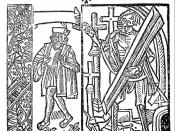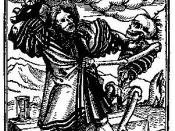Morality can be defined as a code of conduct that is accepted by an individual for his/hers own behavior. Helmer, Nora, Krogstadt and Mrs. Linde all use this definition of morality, so they can justify their actions. Throughout the play it seems quite obvious that Helmer, Nora, Krogstadt and Mrs. Linde all believe in morality at all costs, this is shown because all of these characters are determined to get their way no matter what. They also weigh the circumstances because even though they believe in their morality so much at some point in the play they all seem to come in conflict with their morals. The heredity and environment of IbsenÃÂs play also plays a role for each characters moral viewpoint.
Throughout IbsenÃÂs play ÃÂA DollÃÂs HouseÃÂ it is obvious that HelmerÃÂs moral in the play is the same as societies in the nineteenth- century. HelmerÃÂs moral in the play is to keep up an respectable image to society that he his dominant and in control of his wife, children, household and job just like every other man in the time period.
Helmer believes in his morality without fail because when Krogstadt returns NoraÃÂs note for the loan Helmer wants to keep it hidden so he can keep up an respectable image for society. Helmer weighs the circumstances of his morality only when Nora leaves him and at the end of the play he says ÃÂNora! Nora! SheÃÂs gone. The greatest miracle?ÃÂ(p.450) this shows that Helmer really wanted to give up his morals and make his marriage work somehow. The heredity that the Victorian society had influenced HelmerÃÂs morals because society believed that men and women had to uphold an particular image and this is where Helmer got his morals from.
Even though Nora isnÃÂt seen as an intelligent...


